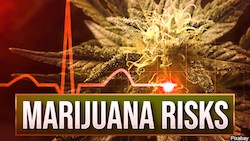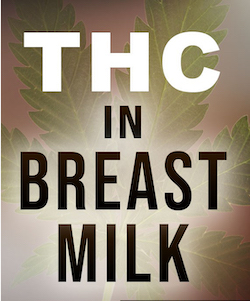By Bryan 18X Crawford -Contributing Writer
While some consider marijuana, or weed, a natural healer or even a gift from God linked to religious practices, the plant has in some ways also been the bane of Black existence. There are literally hundreds of thousands of people—of the more than two million people incarcerated in America—locked up on some kind of weed charge.

According to research from the Drug Policy Alliance, in 2017, 659,700 people were arrested for a marijuana law violation. Of that number 599,282 people, or 91 percent, were arrested for possession of marijuana. All told, of the number of people arrested for drug law violations, 47 percent of them were either Black or Latino.
Still, these figures have not quelled the daily ritual of Black people smoking weed and getting high.
Now, as legalization initiatives are being passed from state to state, springing forth a brand new economic industry that is no longer underground and at the forefront of society, the relationship between Black people and weed seems to have gotten deeper, but there are some troubling aspects of this relationship.
Some view the burgeoning marijuana industry as a modern day gold rush because there is now the ability to actually sell weed and not be arrested for it. Others are taking the softer laws around possession as a sign that America is finally doing right by the Black man who has served more jail time for weed crimes than any other group of people in this country.
But is it a trap?
Can Blacks really trust those who have overseen the system of their oppression for centuries to give us a way out of the condition we’ve been purposely placed and kept in for so long?

“The reason marijuana is being legalized at the state level, but remains illegal at the federal level, is part of the trap,” Dr. Wesley Muhammad, a Nation of Islam student minister who has done a series of popular lectures on the subject, told The Final Call. “But even more than that, marijuana is being legalized because it’s a sedative. Marijuana quiets Black rage.”
For Black people who have personally used marijuana, or know someone who uses it all the time, Dr. Muhammad’s words about weed quieting Black rage may ring true. The drug is quite often used as an escape from the daily pressures associated with being a Black man or woman in America. It’s a drug that helps Black people not focus on whatever problems they may have, and works as a form of escapism. Essentially, as long as you’re high, you’re not as overly concerned with things the same way you might be if you were sober. While on a surface level, this can be viewed as positive in terms of stress relief, the reality is Black people live in a constant state of stress and anxiety, meaning more often than not, they may be more willing to smoke marijuana as a form of relief.

But, if weed acts as a sedative, could smoking it hinder Blacks from channeling righteous anger and indignation they should feel as a result of their condition? Could weed lessen motivation to act to change things and contribute to a more passive state?
Weaponized weed?
Dr. Muhammad, who is an author and holds a Ph.D. in Islamic Studies, said there is a difference in the THC content of marijuana of today and that of the past. THC is the chemical in the drug that produces the users’ high. Modern weed has been scientifically altered to contain significantly higher levels of THC than what would normally be found in marijuana that is cultivated naturally, warns Dr. Muhammad. It is that high grade of marijuana that is not only pushed on Black people, but is now demanded by Black people, he added. These days, weed smokers in Black neighborhoods and communities only want “loud” and not “Reggie,” or a powerful type of marijuana known for its unmistakable smell versus a less powerful version of the drug, he continued.
When consumed in a tobacco leaf or “blunt,” meaning marijuana placed inside a hollowed out cigar, two chemical compounds mixed together can have detrimental effects Black people aren’t even aware of, Dr. Muhammad said.
“White people smoke joints. But because of the weaponization of hip hop, we smoke blunts, which are a Negro phenomenon. When you take the weed with the elevated THC, and mix it with the nicotine in tobacco, both of these compounds have an affinity for melanin,” explained Dr. Muhammad. “The nicotine in tobacco is more dangerous to Black people than White people. Nicotine attaches to melanated tissues and latches on, forever releasing its poisons into the body. … So when Black people smoke blunts, we become walking reservoirs of these two compounds. With weaponized THC married to nicotine in tobacco, it’s doing double the damage and it’s two times as dangerous. So when we talk about recreational legalization, because Black people and White people are not only socially segregated but also scientifically segregated, I wouldn’t be surprised to find out that dispensaries in the ’hood have very different marijuana than dispensaries in middle class, White neighborhoods.”
Dr. Muhammad’s intense study of marijuana and the elevated THC currently found in today’s weed is right and exact. The U.S. Department of Health and Human Services released a study saying, “The marijuana available today is much stronger than previous versions. The THC concentration in commonly cultivated marijuana plants has increased three-fold between 1995 and 2014 (4 percent and 12 percent respectively). Marijuana available in dispensaries in some states has average concentrations of THC between 17.7 percent and 23.2 percent. … Higher doses of THC are more likely to produce anxiety, agitation, paranoia, and psychosis.”
Danger to pregnant women, unborn children
U.S. Surgeon General Jerome Adams, in a recent advisory, warned there is no safe amount of marijuana for teens, young adults, or pregnant women.
Yet increasing numbers of pregnant women are using marijuana, often dealing with conditions like depression or severe nausea despite risks to their babies—a risk many physicians say should not be taken. “I would say we are really rolling the dice with our kids if we expose them to it,” Dr. Neeraj Gandotra, chief medical officer at the Substance Abuse and Mental Health Services Administration at the Department of Health and Human Services told USA Today. “We have a preponderance of evidence marijuana does affect brain development.”
“Studies out this summer in the Journal of the American Medical Association also reported a sharp increase in the number of pregnant women smoking marijuana and an alarming link between cannabis use and preterm births, defined as 37 weeks or earlier,” USA Today reported Sept. 12. “The authors concluded marijuana is ‘likely unsafe’ because preterm births were twice as common in marijuana users vs. non-users. (12 percent vs. 6.1 percent). That’s despite finding a positive effect between marijuana use and lower incidences of preeclampsia—a dangerous condition that includes high blood pressure—and gestational diabetes.”
“Between 2002 and 2017, pregnant women who used marijuana in the previous month increased from 3.4 percent to 7 percent overall and from nearly 6 percent to just over 12 percent during the first trimester, according to new federal data published in the Journal of the American Medical Association,” according to USA Today. “We don’t have any evidence it is safe, but many women at this point don’t even question it as a potential problem,” one doctor observed. “It is often coupled with a distrust of the medical system and particularly medications for mental illness.”
“Yet even doctors who support medical marijuana say medical professionals aren’t warning women enough. They say there is misinformation and an overall lack of information on using cannabis products during pregnancy. Medical marijuana is now legal in 33 states. “Women aren’t getting a consistent message,” Dr. Jordan Tishler, president of the Association of Cannabis Specialists and an advocate for legalizing medical marijuana, told USA Today.
As part of a National Institutes of Health study, “officials called dispensaries and told them that they were pregnant and suffering from extreme nausea. Transcriptions of phone conversations were recorded. In one case, a dispensary employee told a woman, ‘Edibles wouldn’t hurt the child, they’d be going through your [digestive] tract.’ Dispensary employees also sometimes told women to consult with their health care provider, but few did so without being prompted. The study also found 36 percent of recommendations said cannabis use is safe during pregnancy,” said USA Today. “With mixed messaging on marijuana, pregnant women in need of relief are not able to make fully informed decisions, physicians say.
“I don’t think any woman goes into pregnancy wanting to hurt her child, so if she’s using it it’s either because she doesn’t understand the science or hasn’t heard the science,” a physician told USA Today.
A multi-billion dollar industry
According to a study by Grand View Research, the legal marijuana market will be worth $66.3 billion in the next six years. That’s a compound annual growth rate of 23.9 percent. To put that in perspective, according to The Motley Fool, that growth is on par with heavy civil engineering construction (25.7 percent) and alcohol distillation (26 percent), but higher than beverage manufacturing (17.1 percent), real estate (15.1 percent), specialized freight trucking (14.9 percent) and architectural engineering (13.7 percent).
“In terms of recreational, we’re talking about a brand new industry. But the fact is, cannabis is a 99 percent White-owned industry. But with recreational legalization comes the social equity conversation for those impacted by the war on drugs,” explained J.R. Fleming, community activist and founder of E.P.I.C (Equitable Partnerships in Cannabis) to The Final Call.
There have been calls for purging records of Blacks who had weed charges in the past and calls for freeing those jailed for doing what is being presented as a legitimate, even welcome business, as politicians tout its potential to bring in revenue.
Then there is also the question of drug testing, how it would work, or how results should be interpreted by employers?
“How can an employer continue to pursue a drug-testing policy in the midst of the continuing trend of states legalizing marijuana for both medical and recreational use, especially when these states’ laws run up against federal laws that still ban the psychoactive drug’s use?” asked the online magazine EHS Today, in an article titled, “Drug Testing in the Era of Marijuana Legalization: In a constantly changing legal landscape, employers must take care when creating a zero-tolerance policy.”

“‘It can be hard to do so, but it is still possible,’ according to attorneys J. Christopher Selman and Alexander Thrasher of the law firm of Bradley, Arant, Boult, Cummings LLP. ‘This rapidly evolving legal landscape presents new challenges for employers, particularly those with offices and employees in several states,’ they admit. ‘Employers must balance complying with often divergent federal and state laws, maintaining a safe work environment and protecting employees’ rights,’” wrote David Sparkman.
“Most employers today have implemented a zero-tolerance policy that bans the use of alcohol and illegal substances for obvious safety reasons, but new state laws can create additional problems partly because those company policies usually exclude prescription drugs when a worker informs the employer about using them.
“At one end of the spectrum, some states require that employers must accommodate an employee’s use of medical marijuana. … At the other end of the spectrum, states like California and Ohio where medical marijuana is legal do not require accommodation of employee use.
“An effective drug policy decreases hazards and promotes an accident-free work environment. While state and federal laws meant to promote this goal may seem straightforward when read in isolation, problems arise when these laws overlap or conflict with one another,” the article cautioned.
Legal, illegal and unresolved questions
Black people are overrepresented in jails and prisons when it comes to marijuana arrests and convictions, but though many states are legalizing weed, at the federal level, it still remains a Schedule I drug; meaning the government views marijuana as being just as dangerous as heroin, LSD, but somehow less dangerous than cocaine. In addition, even though the penalty for possession has now been greatly reduced and the drug is becoming legalized at the state level, the federal government has no plans to release anyone currently convicted and incarcerated on weed charges in states where marijuana is legal.
“As long as marijuana is federally illegal, the government has the discretion to go in any state where marijuana is legal and make arrests. Federal law trumps state law,” argued Dr. Muhammad. “This is the trap and the ultimate win-win for our enemy. Make it legal so that we continue to partake of it, but suffer the physiological consequences of it and be lured into a false sense of security that we can’t be arrested for it. But you can still get arrested and we still are getting arrested for weed, which continues to feed the private prison industry which has a relationship with the government. Legalization is our enemy’s trap and trick.”